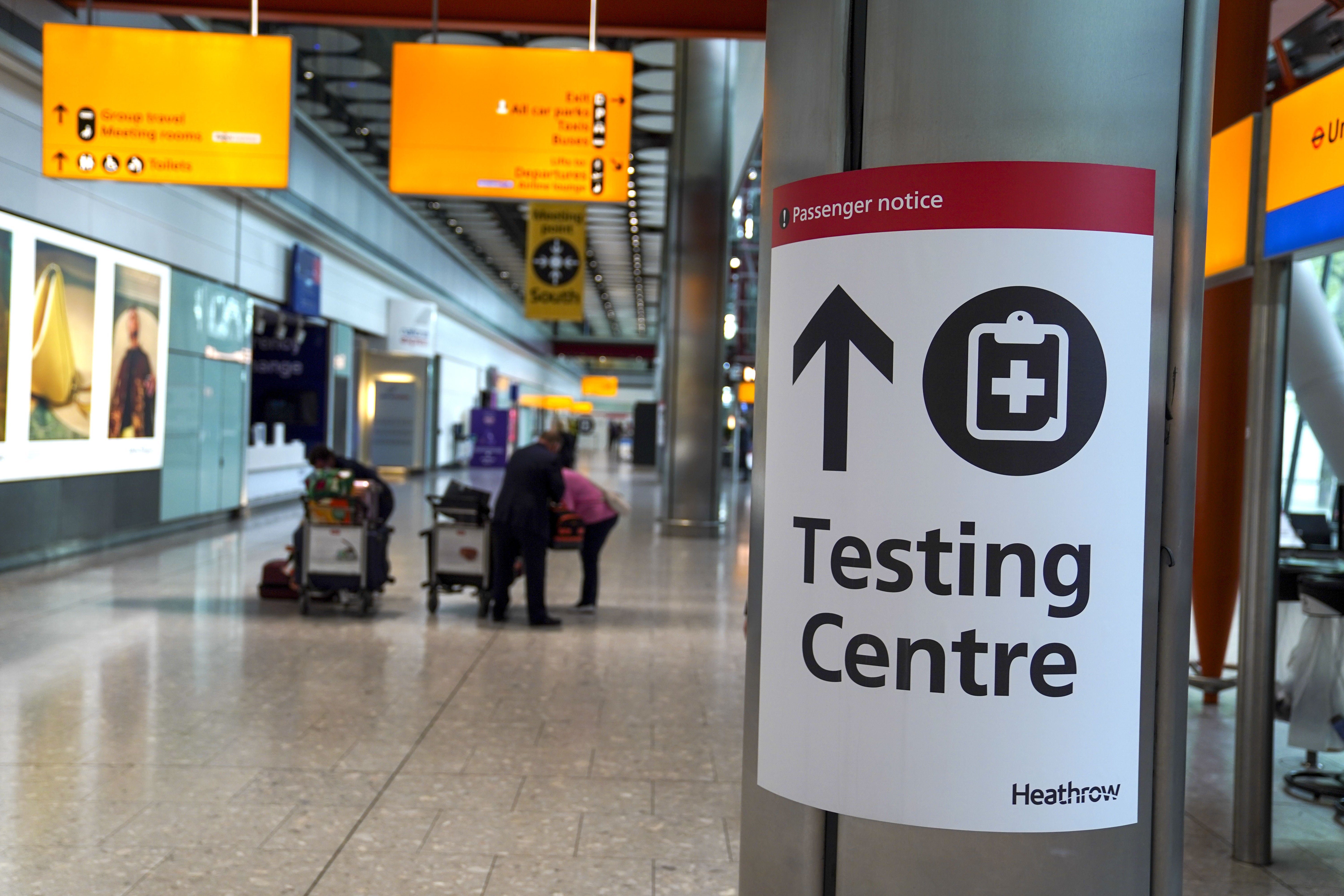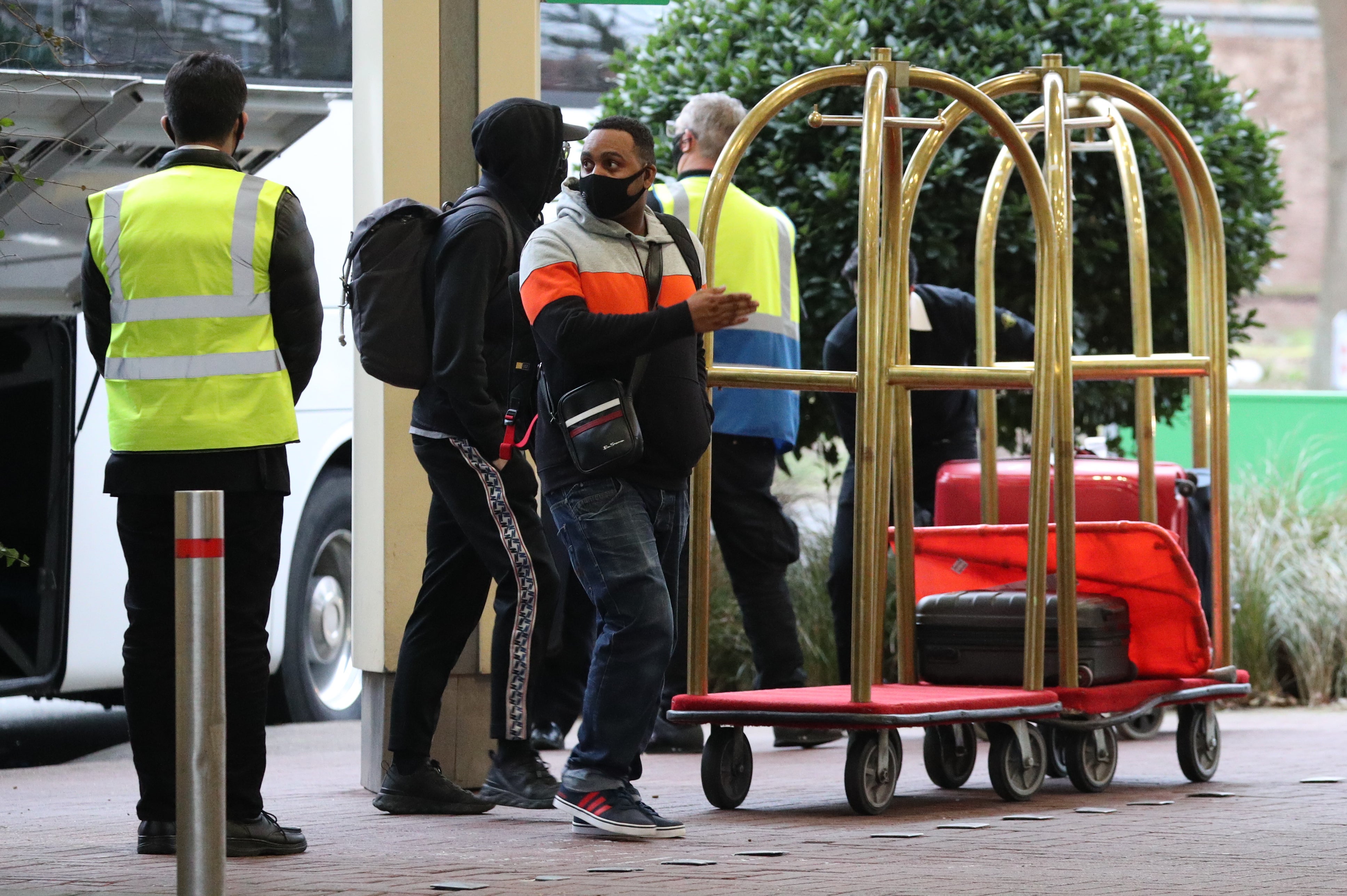Covid travel rules that cost £486m in taxpayers’ money were imposed without overall assessment
The National Audit Office urged the Government to learn lessons in case travel restrictions need to be reintroduced

Your support helps us to tell the story
From reproductive rights to climate change to Big Tech, The Independent is on the ground when the story is developing. Whether it's investigating the financials of Elon Musk's pro-Trump PAC or producing our latest documentary, 'The A Word', which shines a light on the American women fighting for reproductive rights, we know how important it is to parse out the facts from the messaging.
At such a critical moment in US history, we need reporters on the ground. Your donation allows us to keep sending journalists to speak to both sides of the story.
The Independent is trusted by Americans across the entire political spectrum. And unlike many other quality news outlets, we choose not to lock Americans out of our reporting and analysis with paywalls. We believe quality journalism should be available to everyone, paid for by those who can afford it.
Your support makes all the difference.A new report has revealed that England’s Covid restrictions on international travel were imposed by different government departments with no overall assessment of their impact. The watchdog’s report, which one travel industry leader said “highlights a catalogue of failures”, found there was a negligence to tracking costs of the travel rules despite at least £486m of taxpayers’ money being spent on implementing them during the 2021-22 financial year.
It also found that there was no system to measure the success of policies such as the traffic light system, self-isolation, testing, quarantine hotels or passenger locator forms, the National Audit Office (NAO) said.
It also noted the impact on the pandemic on the travel industry in terms of lost revenue has been “significant”. All restrictions were dropped on March 18, but the report urged the government to learn lessons in case they need to be reintroduced.

Gareth Davies, the head of the NAO, said: “The government has had to balance many competing objectives when managing the border through the pandemic, making changes at short notice to adapt to the challenges of Covid-19.
“After two years of the pandemic and following the recent removal of travel restrictions, the government has an opportunity to ensure that it develops a systematic approach to managing any future travel measures, applying the learning from Covid-19.”
England’s rules for international travel changed at least 10 times between February 2021 and January 2022, the NAO found.
Ministerial committees such as the Covid-O Committee took policy decisions which were implemented by government departments, such as: the Department for Health and Social Care, which was responsible for rules on quarantine and testing, including quarantine hotels; the Home Office, which was responsible for implementing checks at the border; the Department for Transport, which created the traffic light system, and the the Foreign Office, which provided travel advice to British nationals.
The report stated that the government “did not have an assessment bringing together all the risks across its border measures for the system as a whole”. It also found that “changes to government’s measures were inevitably made during 2021 to react to evolving circumstances and new information, but these were implemented without formalised system-wide mechanisms to help it adapt its approach, monitor effectiveness, learn lessons and check that changes were being made consistently”.
Meg Hillier, who chairs the Commons’s Public Accounts Committee, described the handling of travel rules as “more reactive than proactive”. This created “a confusing mishmash of different parts and programmes”, the Labour MP claimed.
”There was little evidence of a guiding mind behind its approach, and poor communication meant the public were often bewildered by the travel advice,” Ms Hillier went on. “Monitoring those entering the country relied on goodwill, rather than good data. Government never really got a handle on the numbers, nor whether its border measures were working effectively. Over two years since the pandemic began, government has still not got its house in order.”
Paul Charles, chief executive of travel consultancy The PC Agency, which campaigned against many of the travel rules, said the NAO’s report “highlights a catalogue of failures”.
He said: “It is now clear that there was no joined-up thinking between departments on cross-border travel policies and that no consideration was given to the cost to the taxpayer of introducing a raft of hare-brained measures.
“The government severely damaged a world-class sector and destroyed tens of thousands of jobs over a two-year period. It has many lessons to learn about the way it handles such an event in future.”
A UK government spokesperson said: “The pandemic was an unprecedented challenge and we acted swiftly and decisively to implement policies designed to save lives and protect the NHS from being overwhelmed.
“As the report notes, considerable efforts were made across government to put border measures in place that helped to protect the UK from arriving cases of Covid-19.
“These measures bought vital time for our domestic response to new and concerning variants, contributing to the national effort to contain and manage the virus.”